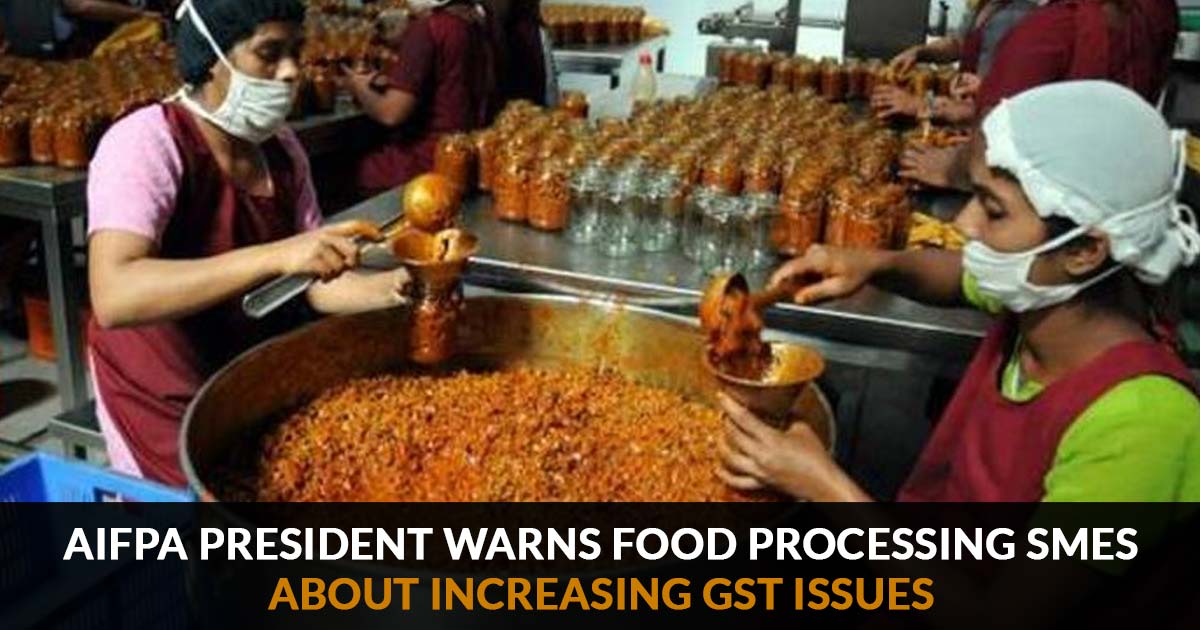While speaking at the 12th Global FAD 2018 of ASSOCHAM in Ahmedabad, AIFPA’s president Subodh Jindal warned that the Goods and Services Tax (GST) will ultimately contribute to the death of small businesses in the food-processing sector of India.
Explaining his reasons, Jindal said that the new tax regime has shifted the market completely in the favour of Multinational Corporations (MNCs) by improving liquidity situation for these organizations. On the other hand, the condition for smaller players in the sector is getting worse with each day.
The GST law requires businesses with an annual turnover of Rs 1.5 crore or more to get a registration and pay taxes. The situation has become worse since they are now required to file monthly tax returns, as opposed to quarterly returns like before. “There was no tax refund on Service Tax on consultancy services during the previous regime. The large companies take such services on a routine basis. Now clubbing all the taxes under one roof has enabled them to get a refund of GST paid on such services. On the other hand, we have difficulty in getting GST refund on exports,” added Jindal.
Jindal further said that India has simply derived the GST regime from the developed countries where large companies are normal, but Indian market is largely occupied by small institutions, who are now on the verge of being wiped out, thanks to GST. These SMEs provide jobs to millions of people in remote places, and if these businesses are closed because of GST, it will result in huge job losses.
Read Also: Goods and Services Tax Impact on SMEs, MSMEs and Startups in India
“Small players cannot compete with large MNCs in the production of grain flours because of economies of scale. Large players can procure raw materials at lower cost. They have better systems for quality control,” warned Jindal.
Suraj Savalia, CMD of Patson Foods (India) Private Limited, also took the opportunity to speak at the occasion. He said that unlike large corporations, where there are separate teams and experts for different business segments, small manufacturers only have the owner to look after the managerial tasks. The GST regime has shifted the market almost entirely in the favour of large companies. If necessary steps are not taken to protect the rights of local SMEs, they might soon be wiped out.
Recommended: Major GST Issues/Problems Seen Across India Till Now









